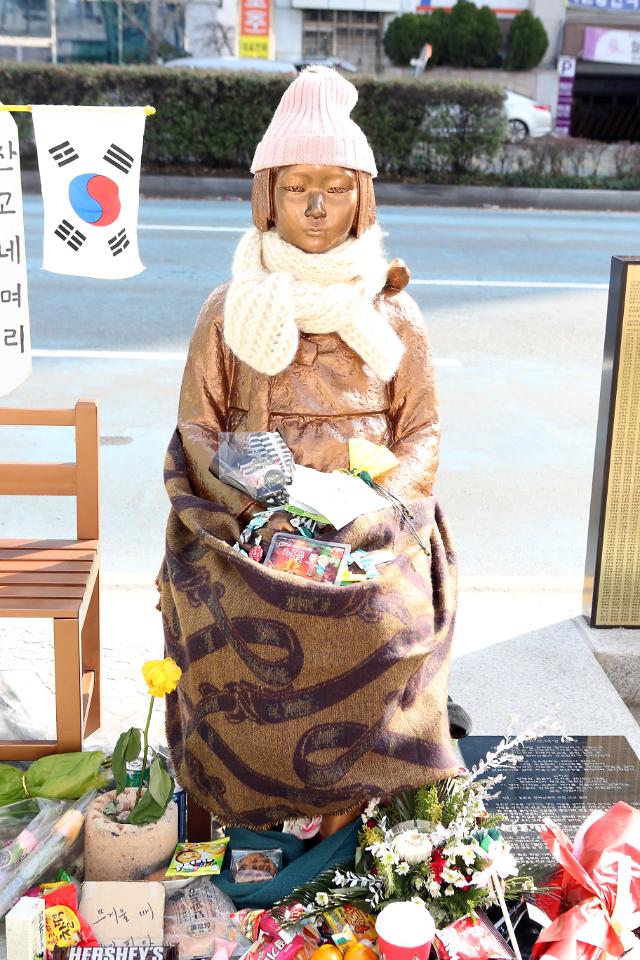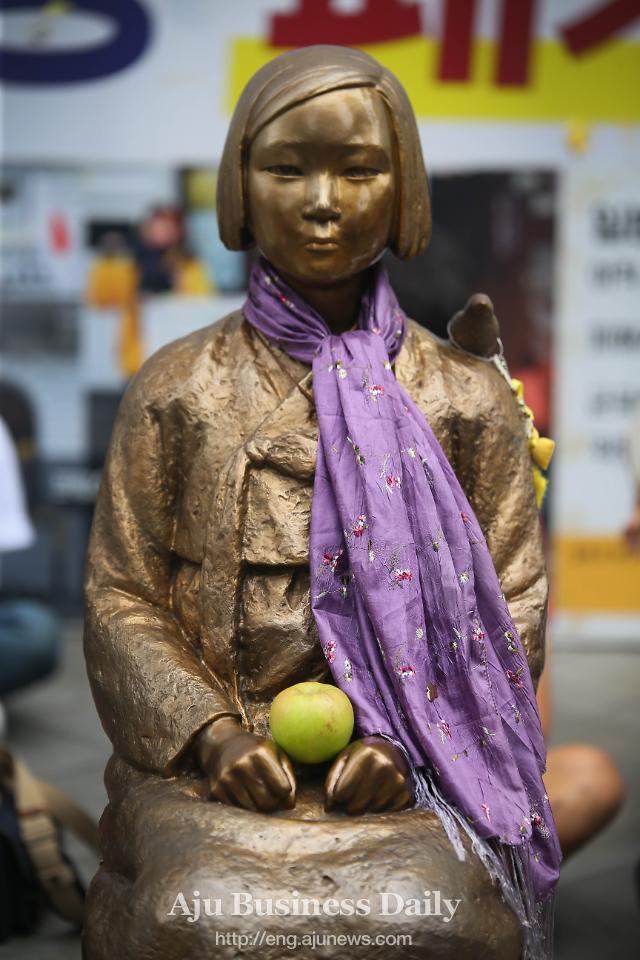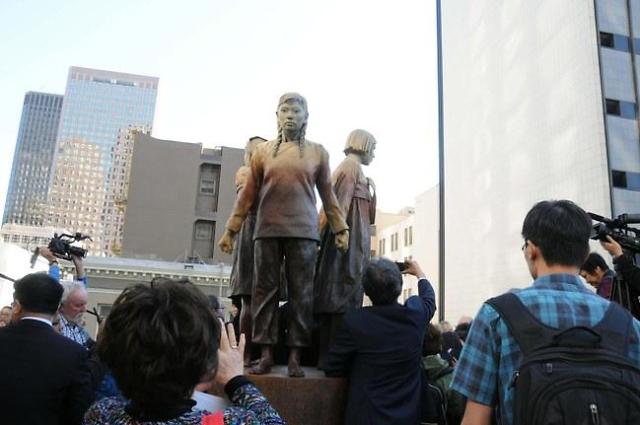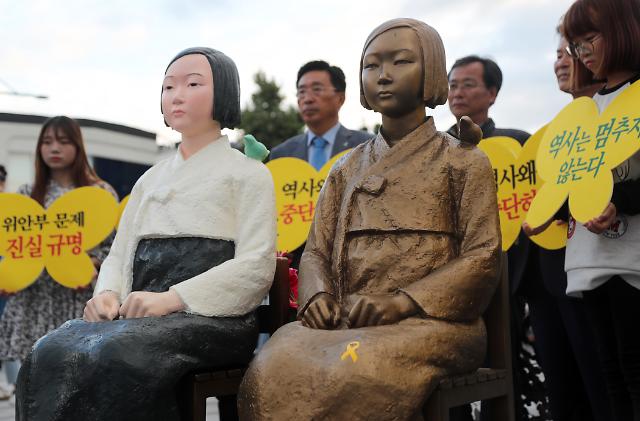
A statue symbolizing a comfort woman sits in front of Japanese consulate general office in Busan, surrounded by tributes offered by citizens. [Yonhap Photo]
Unfazed by Japan's outburst of temper, South Korean civic groups and provincial governments are pushing ahead with the construction of "comfort woman" statues that have reignited a diplomatic row over Tokyo's wartime sex slavery.
The statues, including one set up outside the Japanese embassy in Seoul, symbolize the plight of Asian women sexually enslaved by Japan's imperial army during World War II. Japan thinks they expose embarrassing historical facts.
Local assembly members in the province of Gyeonggi pledged a fund-raining campaign to build a statue outside their office this year and another later on a group of islets, known as Dokdo in South Korea and Takeshima in Japan, in the Sea of Japan (East Sea).
Other provincial governments promised to follow suit. Currently, dozens of statutes have been erected nationwide.
In an escalating row on Monday, Japan's ambassador to South Korea, Yasumasa Nagamine, returned to Tokyo after Prime Minister Shinzo Abe urged South Korea to show "sincerity in an unwavering manner".
"It is lamentable that the comfort woman statue was erected in front of the consulate in Busan," Nagamine told reporters before boarding a flight to Tokyo. A Japanese consul general also left through the southern port city of Busan.

The original comfort women wears a scarf donated by a citizen. [Photo by Yoo Dae-gil = dbeorlf123@ajunews.com]
Seoul and Tokyo reached a landmark deal in 2015 to resolve the emotional "comfort woman" issue after Japan expressed an apology for wartime atrocities and agreed to donate one billion yen ($9.97 million) to a foundation dedicated to supporting the victims of sexual slavery.
In return, Tokyo wants Seoul to tear down the "comfort woman" statues including one set up outside the Japanese consulate in Busan. Opposition parties and civic groups in Seoul contend the 2015 accord should be renegotiated.
The statue in Busan was initially removed by police, but activists were allowed to put it back last month after Japan's defense minister paid homage to a shrine honoring convicted war criminals.
The Seoul government showed awkwardness saying it's up to provincial governments and civil groups, beyond its control, as Japan stopped negotiations on a currency swap agreement and called off a high-level economic meeting in protest.
Historians estimate that up to 200,000 women mostly from Korea were forced to work in front-line brothels for Japanese troops. Many South Koreans still harbor deep resentment against Japan over its 1910-45 colonial rule, and they want Tokyo's sincere apology.
The original statue, in the form of a little girl sitting on a chair with a distant gaze, was erected in front of the Japanese embassy in Seoul in 2011 as a sign of longing for recovering the honor and human rights of comfort women.


![[COLUMN] How long will the Comfort Woman statue last?](https://image.ajunews.com/content/image/2023/04/14/20230414135841628377.jpg)

